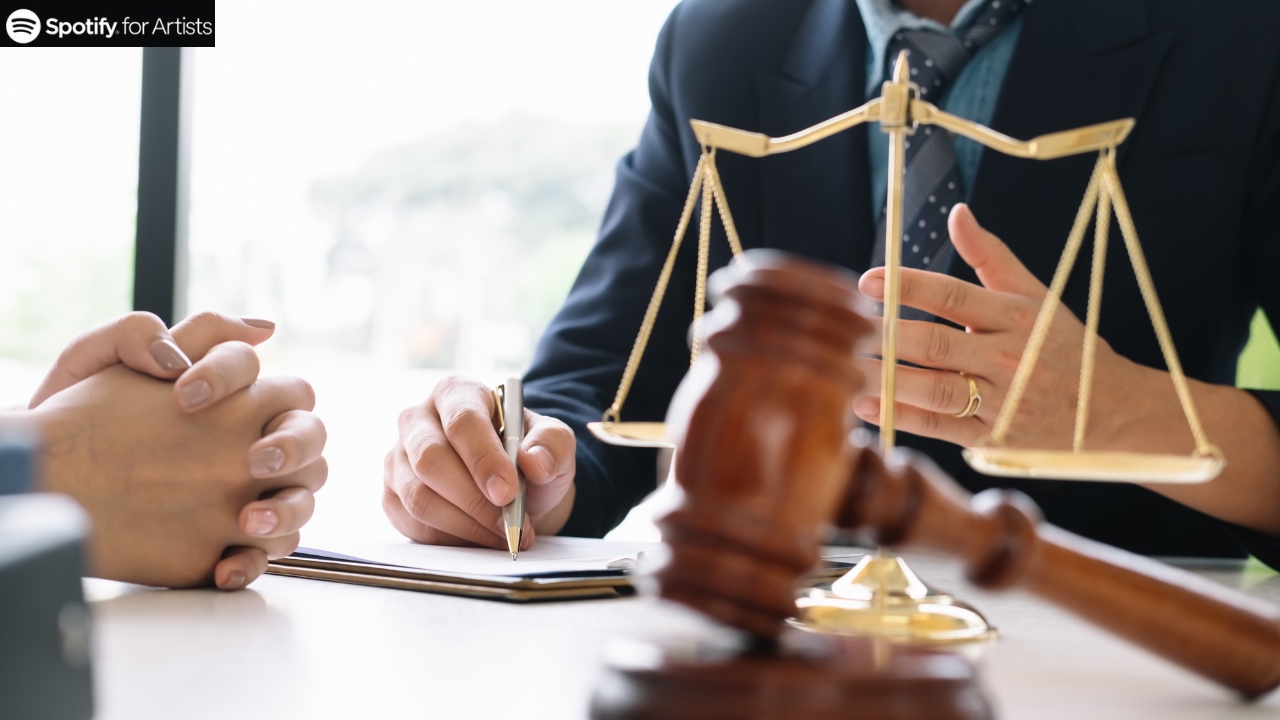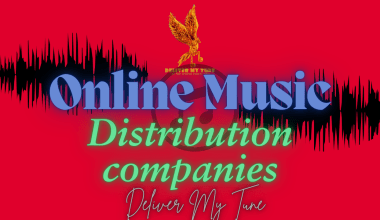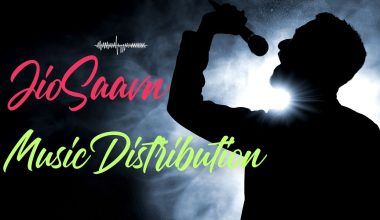In today’s digital age, distributing music on platforms like Spotify is essential for reaching a global audience. However, navigating the legalities involved can be complex. This blog will delve into the legal considerations for distributing music on Spotify, ensuring you understand the key aspects to keep your music journey smooth and compliant.
Copyright Ownership
One of the most critical legal considerations for distributing music on Spotify is copyright ownership. Copyright law protects the creator’s rights over their original works. This means if you’ve written a song, recorded it, or even created the album artwork, you hold the copyright to these elements.
Types of Copyrights in Music
- Composition Copyright: This covers the melody, lyrics, and harmony of a song.
- Sound Recording Copyright: This pertains to the actual recording of the performance.
Understanding these two types of copyrights is crucial because each can be owned by different parties, and each needs to be properly licensed for distribution on Spotify.
Transferring Copyrights
Sometimes, you might transfer your copyrights to another party, such as a record label or a publishing company. When this happens, it’s essential to have clear agreements outlining the terms of the transfer. These agreements should specify:
- The exact rights being transferred.
- The duration of the transfer.
- The compensation you will receive.
Having these details documented can prevent future disputes and ensure that all parties are clear about their rights and obligations. This clarity is a significant part of the legal considerations for distributing music on Spotify.
Licensing Your Music
To distribute your music on Spotify, you need to ensure that you have the proper licenses. Licensing can be complex, but it is a necessary legal consideration for distributing music on Spotify.
Mechanical Licenses
A mechanical license allows you to reproduce and distribute musical compositions. If you are covering someone else’s song, you will need a mechanical license to distribute your version legally. These licenses are usually obtained through organizations like the Harry Fox Agency in the United States.
Synchronization Licenses
If you plan to use your music in videos, including YouTube, you will need a synchronization license. This license is necessary to pair music with visual media. Without this license, using your music in videos can lead to copyright infringement claims.
Contracts with Co-Creators
When collaborating with other artists, producers, or musicians, it is essential to have clear contracts outlining each party’s rights and responsibilities. These contracts should specify who owns what, how profits will be shared, and what happens if there’s a dispute. This is another important legal consideration for distributing music on Spotify.
Producer Agreements
If you work with a producer, make sure to sign a producer agreement. This contract should detail the producer’s fee, royalty splits, and ownership rights of the final recordings. Failing to have a clear agreement can lead to disputes over ownership and revenue.
Performance Rights
Performance rights are another legal consideration for distributing music on Spotify. Organizations like ASCAP, BMI, and SESAC in the U.S. manage performance rights and ensure that songwriters and publishers get paid when their music is played publicly.
How to Register with a PRO
To collect performance royalties, you need to register with a performance rights organization (PRO). These organizations collect royalties on your behalf when your music is played on the radio, television, live venues, and streaming services like Spotify.
Digital Distribution Agreements
When using a digital distributor to get your music on Spotify, you will need to sign a digital distribution agreement. This agreement will outline the terms and conditions of your relationship with the distributor, which is a key legal consideration for distributing music on Spotify.
Key Clauses in Distribution Agreements
- Territory: Specifies where the music can be distributed.
- Duration: The length of time the distributor has the rights to distribute your music.
- Exclusivity: Whether the agreement is exclusive or non-exclusive.
- Royalties: Details how and when you will be paid.
Understanding these clauses is crucial as they impact how and where your music is available and how much you earn from it. Carefully reviewing these agreements can prevent future conflicts and ensure that you are fully aware of your rights and obligations.
Sampling and Clearances
Using samples from other recordings in your music can be risky if not handled correctly. You need to get clearances for any samples used to avoid legal trouble. This involves obtaining permission from the copyright owners of the original recordings, which is an important legal consideration for distributing music on Spotify.
Steps to Clear a Sample
- Identify the Owners: Determine who owns the copyright to the original recording and the underlying composition.
- Request Permission: Contact the copyright owners to request permission to use the sample.
- Negotiate Terms: Agree on the terms of use, including payment and how the sample will be used.
- Get It in Writing: Ensure that all agreements are documented in writing.
Properly clearing samples protects you from potential lawsuits and ensures that all parties are compensated fairly. This step is crucial for maintaining a good legal standing when distributing music on Spotify.
Protecting Your Music
To protect your music, consider registering your works with the relevant copyright offices. In the U.S., this would be the U.S. Copyright Office. Registration provides legal benefits, including the ability to claim statutory damages and attorney’s fees in a lawsuit, which is a key legal consideration for distributing music on Spotify.
Benefits of Copyright Registration
- Public Record: It creates a public record of your copyright.
- Legal Standing: Allows you to sue for copyright infringement.
- Damages and Fees: Entitles you to statutory damages and attorney’s fees if you win a lawsuit.
By registering your works, you gain additional legal protections that can be invaluable in defending your rights as an artist. This proactive step ensures that you are prepared to take legal action if necessary.
Legal Representation
Having legal representation can be invaluable when navigating the legal considerations for distributing music on Spotify. A music attorney can help you understand your rights, negotiate contracts, and ensure that all legal bases are covered.
When to Hire a Music Attorney
- Contract Review: When signing deals with record labels, distributors, or co-creators.
- Dispute Resolution: To resolve conflicts over copyright, royalties, or other issues.
- Rights Protection: To protect your rights and ensure compliance with music laws.
A music attorney can provide expert guidance and help you navigate the complex legal landscape of music distribution, ensuring that your interests are protected at all times.
Common Legal Issues and How to Avoid Them
Distributing music on Spotify involves several common legal issues that can arise if proper precautions are not taken. Understanding and avoiding these issues is a crucial legal consideration for distributing music on Spotify.
- Uncleared Samples: Always clear samples before distributing your music.
- Misunderstood Contracts: Read and understand all contracts before signing. If in doubt, consult a lawyer.
- Royalty Disputes: Keep transparent records of all agreements and payments.
By being proactive and cautious, you can avoid these common pitfalls and ensure a smoother distribution process.
Dispute Resolution
Disputes can arise over various aspects of music distribution, including copyright ownership, royalty payments, and contract terms. Having a clear process for dispute resolution can help manage these issues effectively, which is an important legal consideration for distributing music on Spotify.
Methods of Dispute Resolution
- Mediation: A neutral third party helps the disputing parties reach a settlement.
- Arbitration: A binding decision is made by an arbitrator.
- Litigation: Taking the dispute to court.
Choosing the right method for dispute resolution can save time, money, and preserve relationships. It’s essential to include dispute resolution clauses in your contracts to outline how disputes will be handled.
Conclusion
Distributing music on Spotify involves several legal considerations, from copyright ownership to licensing and contracts. By understanding these aspects, you can protect your music, ensure fair compensation, and focus on what you do best – creating great music.
Remember, the key to a successful music career is not just talent, but also a good grasp of the legal landscape. Being aware of the legal considerations for distributing music on Spotify ensures that you can navigate the digital music industry confidently and effectively. This knowledge helps you avoid potential legal pitfalls and maximizes your potential for success in the music world. So, take the time to understand these legal aspects and enjoy a smooth and rewarding music distribution experience on Spotify.
For further reading, explore these related articles:
- What is Sync Royalty? A Comprehensive Guide for Musicians
- Know the Ways to Get the Music Sync Licensing
- What is Performance Royalty?
For additional resources on music marketing and distribution, visit Deliver My Tune.






